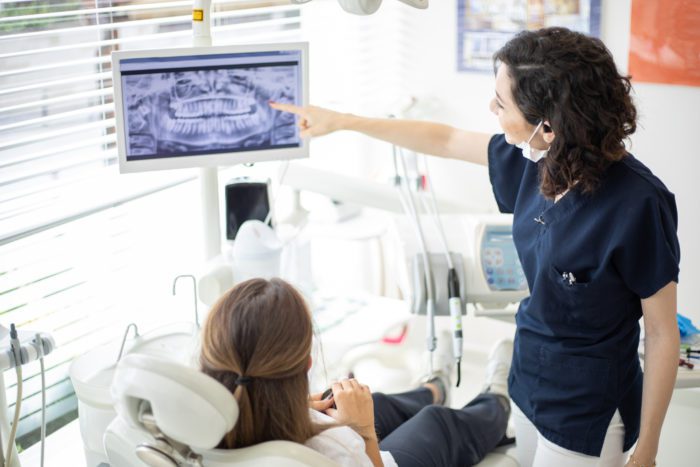Temporomandibular joint disorders (TMD) are caused by stress, pressure, or an injury to the TMJ. The TMJ is the joints that connect the skull to the jawbone. These joints allow you to bite and chew comfortably. TMJ disorders can result in a myriad of painful symptoms, from chronic headaches to discomfort when biting and chewing. Dr. William Harper and his team treat his patients with TMJ disorders in Newport News, VA. They work with patients to find the best solution to address their TMD symptoms and resolve their bite problems. Over time, as TMD worsens, many patients may require jaw surgery in severe cases. We recommend patients call our office as soon as they notice changes in their jaw.

Signs of TMD
There are multiple indicators of TMJ problems. Common symptoms of TMD are:
- Pain in the jaw or temples
- Teeth clenching and grinding (Bruxism)
- Chronic headaches and migraines
- Joint locking
- Pain when eating hard or crunchy foods
Contact our office if you have noticed these symptoms. We encourage patients to call our office as soon as they notice changes in the health of their bite, teeth, or jaw. Our team will thoroughly examine your teeth and jaw and take note of any wear on the chewing surfaces of the teeth. Then, we will recommend a treatment option to you based on the severity of your symptoms.
Treat TMJ Disorders in Newport News, VA
Sometimes patients benefit from physical therapy to manage their TMD symptoms. During physical therapy, patients learn exercises and techniques to relieve pain in their face, back, neck, and shoulders. TMJ disorders not only impact the teeth and jaw but can have an impact on posture and comfort in the upper half of the body. Patients can also adhere to soft diets for multiple weeks to relieve stress on the temporomandibular joints. Sticking to a soft diet for a time lets the jaw take a break and rests the jaw muscles.
Nightguards may be used in conjunction with physical therapy. Similar to mouthguards, nightguards are worn at night when many patients unconsciously clench and grind their teeth. Bruxism, or teeth clenching and grinding, is a highly damaging symptom of TMD. This symptom can lead to tooth wear, chips in the enamel, and tooth fractures. Wearing a nightguard when asleep keeps the teeth from grinding together. In addition, nightguards can relieve morning headaches or chronic migraines. Allowing the jaw to rest also prevents wear on the jaw muscles and joints. Nightguards are an effective option for patients with mild to moderate TMJ symptoms who often wake up with tooth and jaw pain.
Schedule a Dental Consultation
Treat TMJ disorders today. New patients can call our dental office at 757.414.7227. Current patients may call us at 757.868.8152. You can also request a dental appointment with us on our website. We welcome any further questions about TMJ disorders or other dental concerns. Please let us know if you have more questions at your next dental visit and we will be happy to help.

